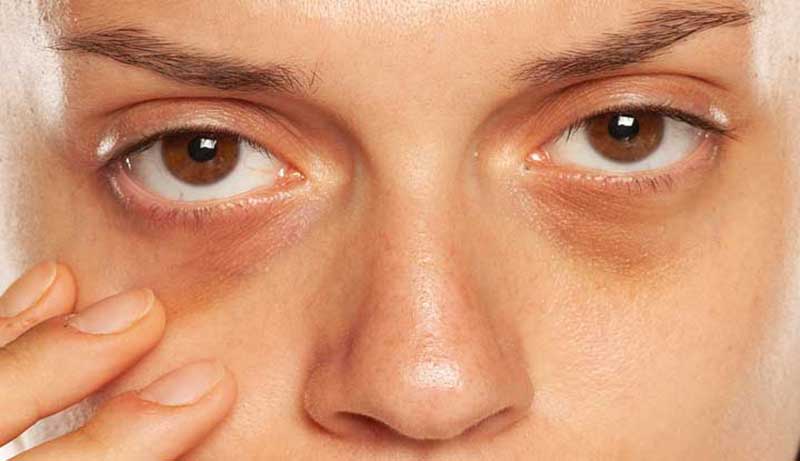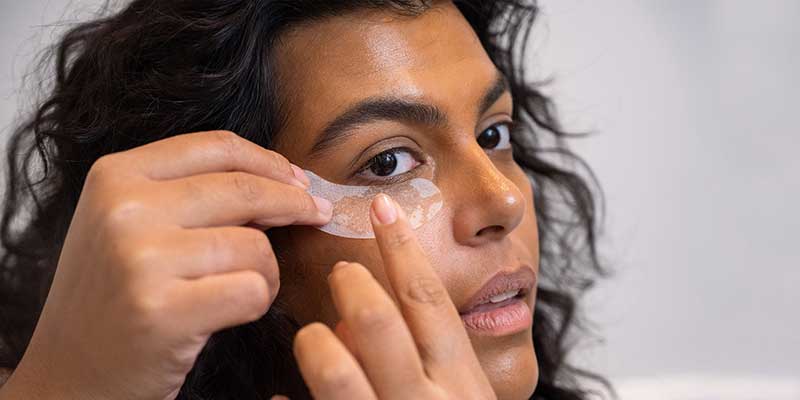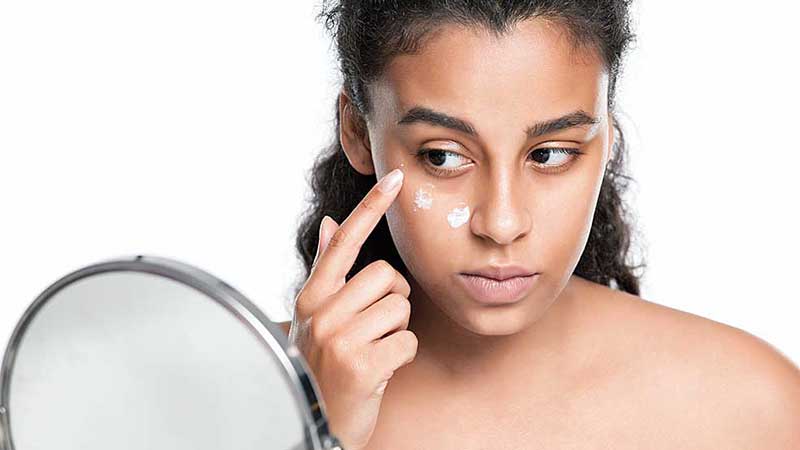Understanding the Causes of Under Eye Puffiness
Introduction
When you wake up in the morning and notice puffiness under your eyes, you might wonder what caused it. Under eye puffiness can occur due to several factors, ranging from lack of sleep to medical conditions. Understanding these causes can help you take appropriate measures to minimize or prevent under eye puffiness.What is Under Eye Puffiness?
Under eye puffiness refers to the swelling or puffiness that occurs underneath the eyes. This condition is commonly caused by the accumulation of fluid and inflammation in the delicate skin surrounding the eyes. The skin in this area is thinner and more prone to swelling than other parts of the face.
Common Causes of Under Eye Puffiness
Lack of Sleep
One of the most common causes of under eye puffiness is lack of sleep. When you don’t get enough sleep, fluid can accumulate under the eyes, leading to puffiness and dark circles. Additionally, sleep deprivation can cause blood vessels to dilate, making the under eye area appear darker.Allergies
Allergies, such as hay fever or allergic reactions to certain substances, can cause under eye puffiness. When you come into contact with an allergen, your body releases histamines, which can cause swelling and inflammation under the eyes.Fluid Retention (continued)
Factors like excessive sodium intake, hormonal changes, and high blood pressure can lead to fluid retention in the body, including the under eye area. The excess fluid can cause the tissues under the eyes to swell, resulting in puffiness.Aging
As we age, the skin naturally loses its elasticity and collagen, leading to sagging and puffiness under the eyes. The fat deposits that normally support the eyes may also shift, causing them to appear more prominent. Aging-related under eye puffiness is often accompanied by wrinkles and fine lines.Lifestyle Factors
In addition to physiological causes, certain lifestyle factors can contribute to under eye puffiness.Poor Diet
A diet high in sodium, processed foods, and unhealthy fats can contribute to fluid retention and inflammation in the body, including the under eye area. It’s important to maintain a balanced diet rich in fruits, vegetables, and whole grains to support overall skin health.Dehydration
When your body is dehydrated, it tends to retain water as a protective mechanism, which can lead to under eye puffiness. Staying properly hydrated by drinking an adequate amount of water throughout the day can help reduce fluid retention and keep your skin looking fresh.Alcohol and Tobacco Use
Excessive alcohol consumption and smoking can both contribute to under eye puffiness. Alcohol can dehydrate the body, leading to water retention, while smoking damages the collagen and elastin fibers in the skin, making it more prone to sagging and puffiness.Stress
Chronic stress can have various negative effects on the body, including under eye puffiness. Stress hormones can disrupt normal fluid balance and circulation, leading to inflammation and swelling under the eyes. Finding effective stress management techniques, such as exercise, meditation, or engaging in hobbies, can help reduce under eye puffiness caused by stress.
Medical Conditions
Under eye puffiness can also be a symptom of certain medical conditions.Sinus Congestion
Sinus congestion or sinusitis can cause inflammation and fluid buildup around the eyes, resulting in under eye puffiness. The congestion may be due to allergies, infections, or structural abnormalities in the nasal passages.Thyroid Disorders
Thyroid disorders, such as hypothyroidism or Hashimoto’s disease, can cause under eye puffiness as a result of fluid retention and changes in the body’s metabolism. Proper management of thyroid conditions can help alleviate this symptom.Dermatitis
Skin conditions like dermatitis, including contact dermatitis and atopic dermatitis, can cause under eye puffiness due to inflammation and irritation of the skin. Identifying and avoiding triggers, as well as using appropriate skincare products, can help manage this condition.Crying and Emotional Distress
Intense crying or emotional distress can cause temporary under eye puffiness. The tears and emotional strain can lead to blood vessel dilation and fluid accumulation in the delicate eye area. Rest, hydration, and gentle skincare can help reduce the puffiness in such cases.Treatment and Prevention
Now that we’ve explored the causes of under eye puffiness, let’s discuss some treatment and prevention methods.Getting Adequate Sleep
Improving sleep quality and ensuring an adequate amount of restful sleep can help reduce under eye puffiness caused by sleep deprivation. Establishing a consistent sleep schedule, creating a relaxing bedtime routine, and optimizing your sleep environment can all contribute to better sleep.Managing Allergies (continued)
If allergies are the cause of your under eye puffiness, it’s essential to identify and manage your triggers. This may involve avoiding allergens, using antihistamines or nasal sprays, and seeking medical advice for severe or persistent allergies.Reducing Fluid Retention
To minimize fluid retention and subsequent under eye puffiness, it’s important to maintain a healthy lifestyle. This includes reducing your sodium intake, staying hydrated, engaging in regular physical activity, and managing conditions like high blood pressure or hormonal imbalances.Skincare and Eye Creams
Using appropriate skincare products, including eye creams and serums, can help improve the appearance of under eye puffiness. Look for products that contain ingredients like caffeine, hyaluronic acid, vitamin C, and retinol, as they can help reduce swelling and improve skin elasticity.
Home Remedies
In addition to medical and lifestyle interventions, there are several home remedies that may provide temporary relief from under eye puffiness.Cold Compress
Applying a cold compress, such as a chilled cucumber slice, a cold spoon, or a damp cloth, can help constrict blood vessels, reduce inflammation, and temporarily reduce under eye puffiness.Tea Bags
Placing steeped, cooled tea bags (such as chamomile or green tea) on the eyes can have a soothing effect and help reduce under eye puffiness. The natural antioxidants and anti-inflammatory properties of tea can assist in reducing swelling.Eye Massage
Gently massaging the under eye area using your fingertips can help improve blood circulation and lymphatic drainage, reducing fluid buildup and puffiness. Use a light touch and circular motions while applying a gentle eye cream or oil for added benefits.Read Honest Reviews of Meta Quest 2: A Comprehensive Guide
When to Seek Medical Help
In most cases, under eye puffiness is harmless and can be managed with home remedies and lifestyle adjustments. However, if you experience severe or persistent puffiness, pain, vision changes, or other concerning symptoms, it’s important to consult a healthcare professional for a proper evaluation and guidance.Conclusion
Under eye puffiness can have various causes, ranging from lack of sleep and allergies to lifestyle factors and medical conditions. By understanding these causes, you can take proactive steps to prevent or minimize under eye puffiness. Remember to prioritize healthy sleep habits, manage allergies, adopt a balanced lifestyle, and seek professional advice when necessary. With proper care and attention, you can maintain a fresh and youthful appearance.Are Under Eye Puffiness and Oedema Related?
Under eye puffiness and oedema are closely connected. Oedema is the medical term used to describe the accumulation of fluid in tissues, resulting in swelling. There are various causes and types of oedema, such as allergic reactions, trauma, or fluid retention. Under eye puffiness can be a visible manifestation of oedema, indicating fluid buildup in the delicate skin around the eyes. Understanding the relationship between these two can help address the potential underlying issues and find appropriate solutions.











